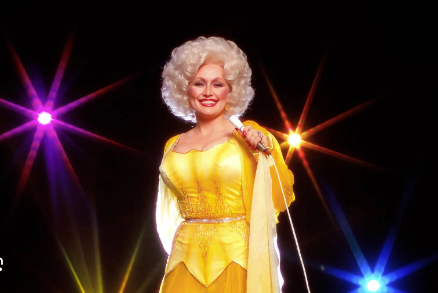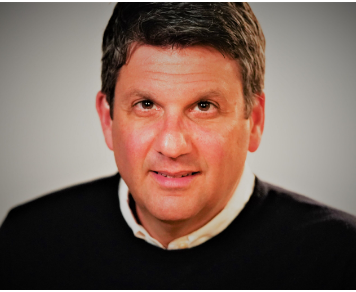Liz Cheney could be the name that makes you think about a daughter of a vice-president, a conservative with hard views, or a person at the centre of one of the most controversial political events in the U.S. history. Cheney is unique in the modern world of fast-changing politics, where people tend to go with the stream, but she preferred to make her own choice. This paper narrates her life in simple terms so that you know her life, her efforts, her impact and what her pathway contains in the prospects of the Republican Party and American democracy.
We will discuss her early life, education, ascendancy to politics, her role during the post-investigation of the January 6 attack on the United States Capitol, her exit out of Congress and her current role in the public. Tables will also help us to make important facts explicit and give take-aways which you can use. Let’s begin.
Who is Liz Cheney?
Early Life and Education Liz Cheney was born July 28, 1966 in Madison, Wisconsin. She is the daughter of Dick Cheney who served as Vice President of United States as well as Lynne Cheney. Her family relocated to Virginia when the professional status of her father improved.
In 1984, she graduated at McLean High School in Virginia and later got herself a Bachelor of Arts in Colorado College in 1988. In 1996, she graduated with the University of Chicago Law School with a Juris Doctor (J.D.).
Liz Cheney biography
| Full Name | Elizabeth Lynne Cheney |
|---|---|
| Date of Birth | July 28, 1966 |
| Place of Birth | Madison, Wisconsin, USA |
| Parents | Dick Cheney (former U.S. Vice President), Lynne Cheney |
| Education | B.A., Colorado College (1988); J.D., University of Chicago Law School (1996) |
| Political Party | Republican Party |
| Congressional Service | U.S. Representative for Wyoming’s at-large district (2017–2023) |
| Leadership Roles | Chair, House Republican Conference (2019–2021); Vice Chair, House Select Committee on Jan. 6 Attack (2021–2023) |
| Key Stances | Defended democracy, opposed 2020 election fraud claims, voted to impeach Donald Trump |
| Major Award | Presidential Citizens Medal (2025) |
| Spouse | Philip Perry |
| Children | Five |
| Post-Congress Role | Public speaker, author, democracy advocate |
Early Professional years Law
Liz Cheney has worked in various positions in the government and law before she was elected to congress: At the beginning of the 1990s, she was employed by the U.S. Agency for International Development (USAID) and the U.S. Department of State. She worked law at the White and Case firm of International Corporation and in the international finance Corporation.
She worked in the State Department as the Deputy Assistant Secretary of State in Near Eastern Affairs under President George W. Bush and thereafter Principal Deputy Secretary of Near Eastern Affairs. These positions developed her qualifications in the national security, foreign policies, and international relations.
Liz Cheney Congressional Years
Election to Congress Liz Cheney was a candidate in the 2016 elections in the at-large district of the U.S. House of Representatives (Wyoming). She was reelected in 2018 and 2020She won and assumed office on January 3, 2017.
Leadership in the House
In January 2019, Cheney was elected Chairman of the House Republican Conference the third-ranking in the U.S. House Republican leadership. Until May 2021, she served in that position.
Policy and Focus on committees
- Armed Services: She served in the House Armed Services Committee which is concerned with military and defence as well as the national security.
- Committee on Rules and Natural Resources Committee: She was on these to have an impact on the process of legislation and matters of resources.
- Her foreign policy and her national security were major themes in her work as she served the government previously.
Voting History and Party Identification
In her initial years in congress, Cheney mostly connected with her party and backed its majority of agendas but that was not the case after the 2020 election. Her action in voting to impeach President Donald Trump after the Capitol attack was a significant departure by a significant number of her own party members. January 6 Investigation and Its Effects.
Role in the Investigation
In response to the January 6, 2021 events, Cheney, on January 29, 2021, became a Vice Chair of the House Select Committee to Investigate the January 6 Attack. She played a vital role in the hearings, testimonies, and the reports that were made by the committee.
Fallout Part of the Republican Party
involvement elicited a lot of criticism among the members of the Republican Party. Her leadership role was stripped away in May 202 She was accused of causing division within the party, as well as, of making a stand that was seen by most of her party members as extreme.
Her Service to Recognition
In January 2025, Cheney received the Presidential Citizens Medal of President Joe Biden in recognition of her work on the January 6 committee and her service to the United States of America. Election Defeat and what Came Next.
Primary Loss in Wyoming
Liz Cheney was defeated by Harriet Hageman (Republican) in the Republican primary in Wyoming in August 2022 and ceased her congressional service on January 3, 2023.
Shift in Public Role
Following Congress, Cheney transitioned into a public position that aims at protecting democratic institutions, speaking publicly and adding commentary to national matters. As an example, she gave a speech at the Pritzker School of Law in September 2025 regarding democracy and the party she had served Liz Cheney and her Themes and Take-aways in her career.
Principle Over Party?
Among the themes that are most conspicuous in the career of Cheney is the choice that she made to consider constitutional duty and not the party loyalty. This is illustrated by the fact that she voted to impeach Trump and served on the January 6 committee.
Future of Republican Party
The path that Cheney took leaves the question of the future of the Republican Party: Will it continue to be conservative as it has always been, or will the populist and nationalistic impulse take center stage? This position of Cheney implies that she supports a variant that is in accordance with institutional checks, alliances and commitment to foreign policy.
Democratic Institutions and Public
The story of Cheney in the world of politics demonstrates the role that people in the public service could play in defending institutions, namely, Congress, the judiciary, the rule of law, even when those institutions are working in conflict with the leadership of the said party.
Table 1: Liz Cheney Professional Timeline
- 1966 Born in Madison, Wisconsin Daughter of Dick and Lynne Cheney.
- 1988 Colorado College Graduate Bachelor of Arts.
- 1996 Received J.D. at University of Chicago Legal studies
- 200204 Deputy Assistant Secretary of State, Near East Affairs Foreign-policy position.
- 2017 Took over in U.S. house of Representatives in Wyoming Became a member of Congress.
- 201921 House Republican Conference Chairperson Third rank Republican in House.
- 2021–23 Vice Chair of House Select Committee on Jan 6 Major national position.
- 2022 Wyoming Republican primary loss Termination of congress.
- 2025 Presidential Citizens Medal received This was in recognition of the service to the people.
Table 2: Liz Cheney: Major Positions
Policy Area Liz Cheney position Notes. Election integrity Anti-fraud claims in the 2020 election Voted to impeach Trump over his role in Jan 6 incident. Foreign policy Firm supporter of alliances & involvement of U.S. experience State Dept Near Eastern Affairs. Party leadership Founded early with GOP, separated later on party leadership basis to her role on Jan 6 committee. Civil service and service Puts objectivity and constitution over partisanship Awarded through Presidential Citizens Medal. Why Liz Cheney Matters Today.
A Symbol of Principle
Liz Cheney is often viewed as an icon of virtue in contemporary politics a Republican who has been critical of her own party course since she felt that it was endangering democratic principles. To most observers that makes her more than she is on paper.
Future Political Influence
Despite the fact that she does not serve in office any longer, Cheney is still in the game. Her commentary, oration, and writing are also authoritative in the discussions concerning democracy, rule of law, and governmental role.
Effect to the Young Americans and Women
Cheney is also a widely recognized woman in a political arena whereby men reign supreme. Her readiness to defy orders is a role model to a new generation of the public-servants that may have found themselves torn between duty and virtue.
Challenges and Criticisms
Within Party Criticism. Cheney was heavily criticized by other members of the Republican Party, not only in her position on the January 6 attack and election matters, but also in the way she used her position as a spokesperson on behalf of the party. Others considered her as betraying party unity.
Problems of Alignment and Perceptions
Where people defend her because of standing up her principle, others say that her stance has thrown off main republican voters, and undermined her political position. Her policies and discourse were at other times depicted as conflicting with the mainstream GOP concerns.
What Can we learn what Liz Cheney?
Commitment Matters No matter the political opinion of the viewer, the career of Cheney demonstrates that having a strong commitment can make a life in the public. Whether she is right or wrong in her stances, her clarity in her position offers us an insight into how the operation of the public service can become transparent when the values and institutions are given a priority.
Politics Not necessarily about popularity
In most cases, political achievements rely on popularity, party endorsement and time. The story of Cheney demonstrates that occasionally it can be a personal or political price to do what one thinks is right to do, but it can also create a legacy that is worthwhile.
Democracy Needs proactive protectors
The fact that Cheney focuses on the protection of the institution, the honest elections, and peaceful transfer of power makes citizens remember that the process of democracy does not come on a silver platter but remains a challenging issue to be paid attention to, and sometimes demands hard decisions on the part of the citizens that serve.
Summary
When analyzing the career of Liz Cheney we observe an account of legacy, service, decision and change. Since joining the foreign-policy process as a young professional through to her ascension to power as a Congressional skewer, then to the stage of participating in one of the biggest constitutional events in the United States history the January 6 investigation, Cheney has been a symbol of conformity and dissonance to her party. She is a model of how people in politics can put principle over party, how leadership can be revitalized by thinking about institutions, and how in some cases, serving the people requires one to go it alone.
Conclusion
To anyone attempting to decipher the contemporary Republican Party of the United States, the dilemmas to democratic principles, or the place of servants of the people during turbulent times the story of Liz Cheney provides a plethora of content. What is learned is that democracy is not made only by the electoral system and legislation but also by individuals who are ready to speak out. Whether you agree with her decisions or her ways, she provides us with a prism through which to pose ourselves the question: what does it mean to serve one country but not just one party? And what about remaining loyal to bigger ideals, and serving in political machines?
The journey that Cheney has been on will remain relevant as the political arena changes, not just in terms of her actions, but also in terms of what she indicates about the opportunities and tension of leadership in the people during times of change.
FAQs
1.Who is Liz Cheney, and how did she grow up?
Elizabeth Lynche Cheney is the real name of Liz Cheney. Born July 28, 1966, in Madison, Wisconsin, she was later transferred together with her family to Virginia. Dick Cheney is her father and Lynne Cheney is her mother.
2.So what were her roles in the congress?
Cheney represents Wyoming, the at-large district, in the U.S. House of Representatives since January 3, 2017. She served as the Chair of the House Republican Conference between 2019 and 2021 and the Vice Chair of the House Select Committee on the January 6 Attack between 2021 and 2023.
3.What is the reason as to why Liz Cheney left Congress?
In August 2022, Cheney was defeated in the Republican primary in Wyoming by Harriet Hageman, so he did not seek the House seat in November. Her term ended on January 3, 2023
4.What does Liz Cheney think of the 2020 election and January 6 attack?
Liz Cheney denied the fake statements of a stolen election in 2020 and was on the committee to research the January 6 attack. She cast her ballot to impeach the former President Trump over his involvement in the incidences on that day.
5.What are some of the awards that Liz Cheney has earned due to her service?
Cheney received the second-highest civilian award in the U.S., the Presidential Citizens Medal, in January 2025, due to her work in the public and the January 6 committee.











Leave a Reply